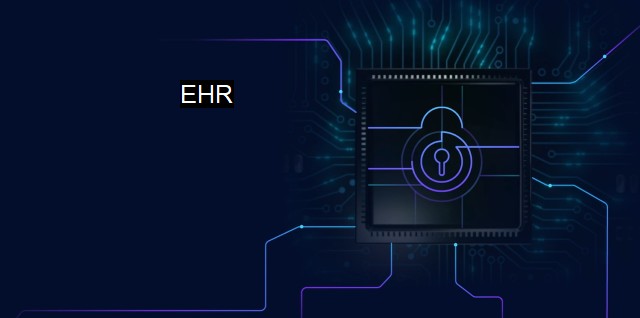What is EHR?
The Importance of EHR Management and Cybersecurity in Healthcare: Challenges, Risks, and Solutions.
Electronic Health Records (EHR), essentially digital versions of patients' records, have revolutionized people's access to health information. Healthcare providers worldwide use EHR systems, mitigating the drawbacks of traditional paper-based systems. These digital systems enable the secure sharing of patients' health data across multiple healthcare professionals, hospitals, and geographic locations. the increasing digitization also opens up new potentials for cybersecurity threats that underline the importance of effective antivirus solutions.With EHR systems are a fascinating area. Their main goal is effectively managing patient data but as with any system that digitalizes and centrally stores sensitive information, they inadvertently become a target for cybersecurity threats. These systems are replete with sensitive data about patients – from medical histories to financial information. Unauthorized access to EHR systems could lead to significant consequences such as identity theft, financial loss, medical fraud, and legal implications.
In numerous sectors, cybersecurity threats are combated primarily through antivirus programs. Their operations involve scanning the system for malicious software, extracting them, and healing the system to prevent future attacks. As far as EHR systems are concerned, this conventional antivirus programs assumption stands problematic. As EHR systems exist as repositories of protected health information (PHI), any compromise attempting to access these details lacks the subtlety customary of a regular virus – operations, so complex, are far from the grasping capabilities of generic antivirus solutions.
In the traditional sense, an antivirus may not fully protect EHR systems because of their expansive and complex nature. Therefore, there has to be a more holistic approach to cybersecurity, encompassing not only standard fare endpoint protection – antivirus included – but also taking into account network security measures, access control measures, data encryption, and a mature security information and event management process. This indicates EHR systems require a tailor-made, comprehensive cybersecurity strategy, carefully developed and strictly enforced.
Also, personnel training and education are fundamental for keeping EHR systems secure from cyber threats. Medical staff ought to be vigilant for phishing attempts, avoid clicking suspicious links, or downloading dubious files. Adequate training would protect healthcare organizations from human error, one of the primary causes of cybersecurity breaches.
It is critical too that state-of-the-art security infrastructure houses these EHR systems, where renowned standard cybersecurity practices like the use of firewalls, intrusion detection systems, intrusion prevention systems, and robust network security policies are applied. The continuous monitoring of security events and incidents diary becomes inevitable as part of an overall cybersecurity management plan.
Enhancing cybersecurity measures within EHR systems is all the more vital because of the very nature of the information stored in them – medical records, demographic details, and financial data. The loss or theft of such information from these systems could lead to tangible harm to the individual concerned, including unwanted exposure of private healthcare issues, personal identity misuse, financial loss, and may potentially disrupt continuity of care.
While EHR systems have vastly improved patient care, the threat of cybersecurity to these systems cannot be overstated. The challenge ahead of the healthcare industry lies in managing the necessary, increased security layers to protect EHRs without discounting the user accessibility and ease of use, a primary focus of EHR services. Therefore, high-grade, holistic cybersecurity measures, including but not limited to antivirus tools, personnel education and state-of-art security infrastructures, are required to keep EHR systems safeguarded. It's a balancing task that needs doing with care to ensure both patient safety and data privacy.

EHR FAQs
What is EHR?
EHR stands for Electronic Health Records. It is a digital version of a patient's medical records that contains information such as medical history, diagnosis, treatment plans, and test results.Are EHRs secure?
Yes, EHRs are designed to be secure to protect patient confidentiality and privacy. EHR systems use advanced security technologies such as encryption, firewalls, and user authentication to ensure that patient data is kept secure.Can EHRs be hacked?
Like any other digital system, EHRs can become vulnerable to cyberattacks if proper security measures are not in place. However, EHR vendors provide regular software updates to address security vulnerabilities and prevent potential cyberattacks.Do antivirus programs protect EHRs?
Antivirus programs can help protect EHRs from malware infections that can compromise the system’s security. It is recommended to use an updated and reputable antivirus program to protect against viruses, Trojans, and other forms of malware. However, antivirus programs are just one aspect of a comprehensive cybersecurity strategy that includes regular data backup, access control, and employee training.| | A | | | B | | | C | | | D | | | E | | | F | | | G | | | H | | | I | | | J | | | K | | | L | | | M | |
| | N | | | O | | | P | | | Q | | | R | | | S | | | T | | | U | | | V | | | W | | | X | | | Y | | | Z | |
| | 1 | | | 2 | | | 3 | | | 4 | | | 7 | | | 8 | | |||||||